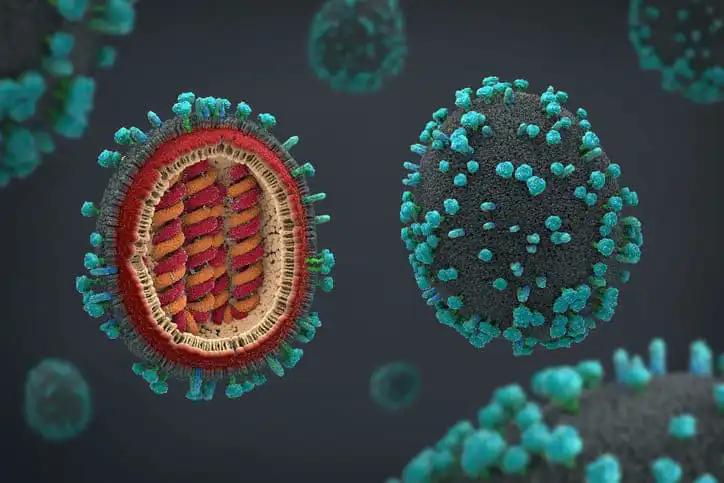KEY TAKEAWAYS
- The phase I trial aimed to evaluate the safety, tolerability, efficacy, pharmacokinetics, and pharmacodynamic data of MT-6402 in pts with relapsed/refractory PD-L1+ solid tumors.
- Dose escalation with MT-6402 is ongoing in pts. Safety, tolerability, efficacy, pharmacokinetics, and pharmacodynamic data are being reported.
- The study found MT-6402 with 3 unique MOAs shows promising activity in relapsed/refractory cancer.
MT-6402 is an engineered toxin body (ETB) that targets PD-L1+ cells and has 3 unique mechanisms of action (MOAs) to kill cancer cells and boost the immune system. Researchers aimed to evaluate the safety, tolerability, efficacy, pharmacokinetics, and pharmacodynamic data of MT-6402 in patients(pts) with relapsed/refractory PD-L1+ solid tumors.
The study continued the dose escalation of MT-6402 (weekly in 4-week cycles) in pts with relapsed/refractory PD-L1+ solid tumors. Doses from 16 to 63 µg/kg have been cleared, with evaluation ongoing at 83 µg/kg. The report includes safety, tolerability, efficacy, pharmacokinetics, and pharmacodynamics data.
The study reported 63 µg/kg dose of MT-6402, one patient with metastatic nasopharyngeal carcinoma (NPC), previously progressing despite radiation, chemotherapy, and CPI (PD-L1 CPS=2%, not HLA-A*02), achieved a PR (63% target lesion reduction) after 2 cycles. This patient exhibited increased CD8/CD4 immune activation cytokines (IL-2, TNFα, IFNγ), indicating MDSC elimination. In a non-small cell lung cancer (NSCLC) patient with bone-only disease after CPI progression, 3/4 osseous metastases resolved, and radiotracer uptake decreased in the remaining metastasis. This patient, with high PD-L1 and HLA-A*02/CMV+, showed complete CMV-specific T-cell extravasation on C1D8, consistent with CMV antigen presentation on tumor surface via MHC class I.
All cohorts showed reduced peripheral PD-L1+ MDSCs, monocytes, and dendritic cells post MT-6402, with more pronounced effects at higher doses. Most pts experienced CD8+ T-cell expansion, elevated IL-2 and TNFα, aligning with PD-L1-mediated immunotolerance. MT-6402 was well tolerated; dose-limiting toxicities were G2 maculopapular rash at 24 µg/kg and G3 IRR at 63 µg/kg. No G ≥ 4 adverse events (AEs) occurred. Infusion-related reactions appeared in 3 pts (G1, G2, G3), and Cytokine Release Syndrome in 3 pts (G1 [2 pts] at both 32 and 42µg/kg and G2 [1 pt] at 16µg/kg).
The study concluded the drug was well-tolerated in the first five dose cohorts and showed promising activity in two pts. These results support further investigation of MT-6402 in clinical trials.
Source: https://ascopubs.org/doi/abs/10.1200/JCO.2023.41.16_suppl.2552?role=tab
Clinical Trial: https://classic.clinicaltrials.gov/ct2/show/NCT04795713
Minal A. Barve, Brian Andrew Van Tine, Rebecca A. Redman, Steven Francis Powell, William Jeffery Edenfield, Julio Antonio Peguero, Victoria Meucci Villaflor, Karen Stein, Chris Moore, Rachael Orlandella, Swati Khanna, Joseph Dekker, Silvia Ferrati, Soratree Charoenthongtrakul, Yanning Liu, Kristina Dabovic, and David R. Spigel. DOI: 10.1200/JCO.2023.41.16_suppl.2552 Journal of Clinical Oncology 41, no. 16_suppl (June 01, 2023) 2552-2552.



